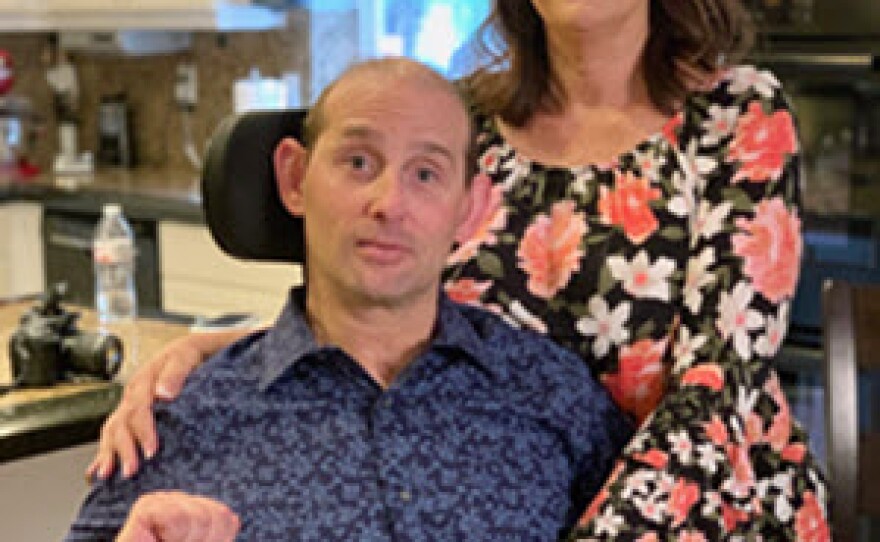Escondido resident Sherrie L. Rubin, who has spent the last 10 years educating communities about the dangers of opioid use and addiction, has been selected a KPBS and National Conflict Resolution Center Community Hero for her efforts to curb the opioid epidemic.
“I enjoy going out to the schools, the meetings and the community groups and giving presentations,” said Rubin, who is the mother of four and grandmother of eight. “I think that's the most important thing to do that would stem the epidemic. You have to educate the user, the person that's going to put (the drug) in their hand.”
Rubin, who founded the Hope2gether Foundation to prevent opioid deaths and addiction, assumed the role of opioid educator and advocate for drug policy changes after she almost lost her son, Aaron, in 2005. Aaron, who was 23 at the time, had taken a dose of Oxycontin that was as strong as black tar heroin, she said, and he slipped into a coma.
Her son was on life support and the doctors suggested withdrawing care after the 10th day. Rubin refused.
“I said,’10 days is your magic number? It’s not mine,’” Rubin recalled. “It took me nine months to bring this child into the world. I’m not letting him go in 10 days.”
Aaron Rubin survived, but is now quadriplegic. The former football player can’t speak and he uses hand signs to signal “yes” or “no.” Sitting next to his mother and using his hands, Aaron indicated that he, too, likes giving presentations to students, alongside his mother. Students are so transfixed by Aaron and his story “you could hear the tiniest of beads drop,” Sherrie Rubin said. “I try to get Aaron as close to students as possible. He will fist bump with them. He’ll hand them our wristbands. Even if they forget me or what I’ve said, they will not forget Aaron.”
Sherrie, Aaron and the foundation have received countless responses from people they have helped, she said. The farthest letter came from Canada. Rubin has also traveled to Florida, Oklahoma, Arizona and other states to educate students about the risks of opioid use.
But Rubin says the heart of her work is in San Diego County, where more than 250 people died in 2018 of opioid-related causes, and 90 of those deaths were a result of fentanyl, according to preliminary numbers from the County Medical Examiner’s office. Fentanyl is more potent than heroin.
Rubin is a member of the San Diego Prescription Drug Abuse Task Force and has been an advocate for some key policy changes involving opioid prescriptions in California. She said she testified at the state capital in support of legislation to make the use by doctors of the Controlled Substance Utilization Review and Evaluation System (CURES) database mandatory rather than voluntary. The database tracks the prescriptions of certain controlled substances dispensed to patients in California. Rubin said the system is now very effective and has helped curb doctor shopping.
However, one entity alone cannot stop this epidemic, she said. That’s why she has worked with the U.S. Attorney’s Office, the Drug Enforcement Agency, and the San Diego Sheriff's Department among others.
“You’re not going to arrest your way out of it,” Rubin said. “You’re not going to legislate your way out of it. You’re not going to educate your way out of it. You need the combined efforts of all entities and community leaders to halt this epidemic.”







